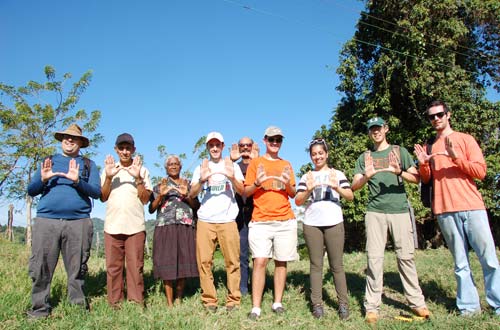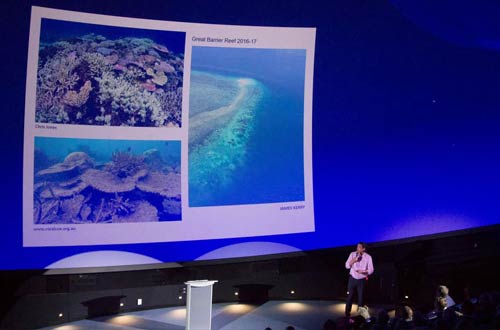

The University of Miami’s research on environmental issues is unprecedented, rich with discovery and science, and well established in the Caribbean Basin.
When looking at the environment of the Caribbean Basin, University of Miami researchers and scientists are examining the impacts of climate change on coral reef systems, water temperatures and patterns of tropical cyclones. They also study ocean circulations and examine deep-water sediments to discern information on our future through an examination of the past.
Others have traveled extensively throughout the Caribbean, acting as educator, researcher and sleuth. Plucking thousands of marine specimens from the ocean depths from the Bahamas to Barbados since the 1930s, they have discovered new species, confirmed speculations on others and uncovered mysteries that remain unsolved even today.
About the Video
Researchers at the UM Rosenstiel School of Marine and Atmospheric Science are hard at work at discovery in the Caribbean.
Join the Conversation:
Follow on
Twitter:
University of Miami, @univmiami
UM News, @univmiaminews

A Museum of Marine Life
Since the 1930s, UM scientists and students have been adding to a vast collection of marine invertebrate species, considered one of the largest in the world. Many visitors to the University of … More

Influencing Hurricane Intensity
Rosenstiel School researchers are analyzing whether warmer freshwater from South American rivers is impacting the strength of hurricanes in the Caribbean Sea. Hurricane Matthew, the … More

Protecting Flora, Fauna, and Humans in the Caribbean Biological Corridor
A University of Miami anthropologist is working to study and protect the unique native flora and fauna—and the people … More

Exploring Energy Options for Cuba
A College of Engineering faculty member begins modeling a Net Zero Energy Community for Cuba’s future energy infrastructure. Cuba has been slowly but steadily moving toward an energy … More

Finding Keys to Coral Survival
Corals in Cuba, considered to be some of the most pristine in the Caribbean, may help determine how these ecosystems can survive climate change. Andrew C. Baker, an associate professor in … More

Father of Dust
UM Professor Emeritus Joseph M. Prospero analyzes the effects of Saharan dust on air quality in the Caribbean Basin. Air quality in the Caribbean is not something that creates headlines … More

Working Together to Build a Sustainable Future
The UM Chapter of Engineers without Borders travels to the Dominican Republic for the first step in creating a water system engineering … More

A Pregnancy Exam for Jaws
Shark expert Neil Hammerschlag administers ultrasounds on sharks at Tiger Beach in the Bahamas. Moving swiftly and acting a bit moody, the large pregnant female showed up for her ultrasound without a scheduled … More

Science as Diplomacy
The Rosenstiel School’s final lecture of the 2017 Sea Secrets series focused on using science diplomacy to bring marine science together in the U.S. and Cuba and was held at the new Frost Science Museum. At a time … More
